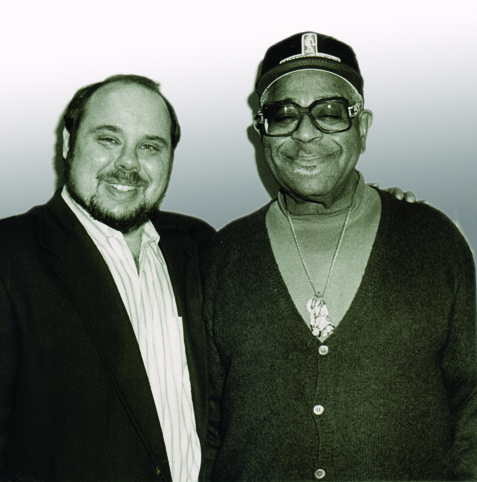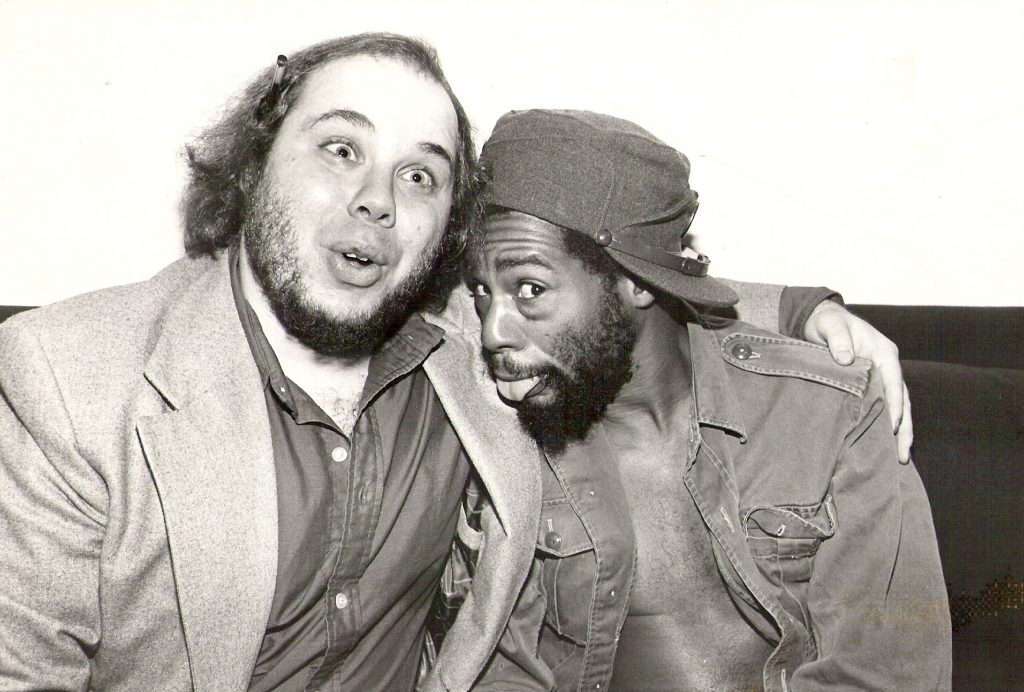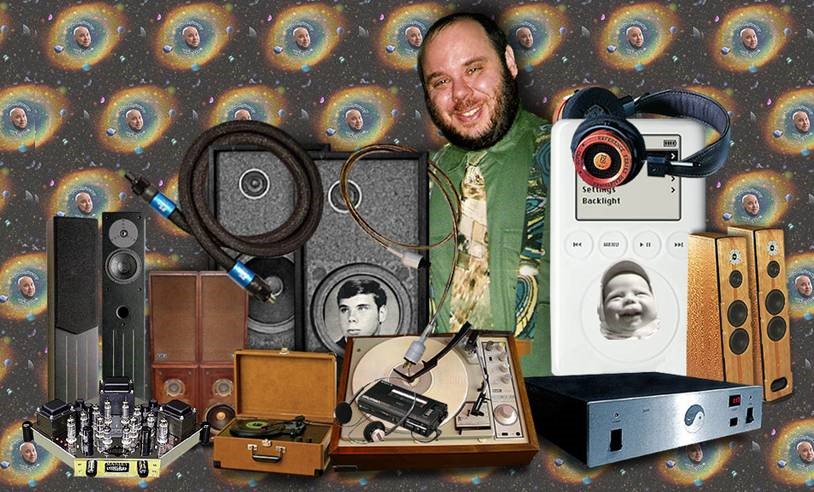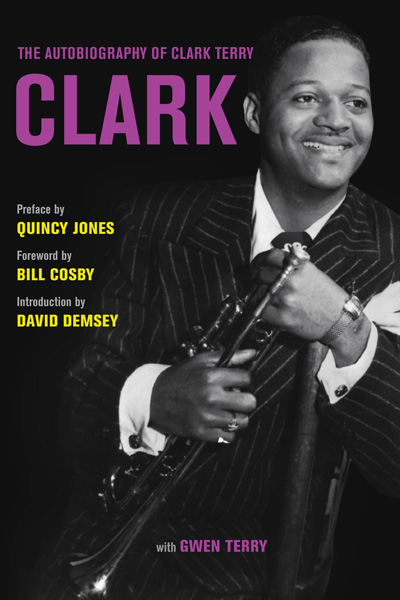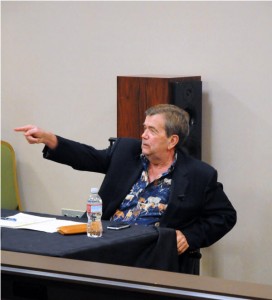Radio Free Chip
The French have a phrase for it.
The bastards have a phrase for everything and they are always right.
To say goodbye is to die a little.
Raymond Chandler, The Long Goodbye
It’s always too damn soon to say goodbye.
I have always believed...well, postulated in any event, the notion that when we pass on, shapeshifters that we are (matter and energy being interchangeable, in that it can neither be created nor destroyed), that our souls, for want of a better term, reflect all of our corporeal and spiritual aspects, simultaneously, and that in throwing off this decrepit mortal coil, we are at one with all of those aspects.
I like to think that Aretha is residing in this aspect as depicted by this classic stock promo photo, our Detroit home-girl, in the blush of youth and the exultation of discovery, her gift, long aglow, suddenly blossoming, hell, detonating in plain sight, like a fourth of July fireworks show, a celebration of the best America has to offer, for all to see.
To say goodbye, is to die a little, and with Aretha Franklin’s passing, a residual trace of my youth, fades to black…and I, shortly, to follow—we are all playing with the house’s money.
Meanwhile, with more new dawns a-coming, rarely have any of us felt more alive, then when listening to Miss Aretha Franklin. Nor will her August 16, 2018, passing diminish her impact, any more than Elvis Presley’s passing 51 years to the day, on August 16, 1977, diminished his impact upon a glorious musical/cultural/racial polyglot that defined a new chapter in American history, going forward, a strange new gathering of tribes, with simple justice a-coming, as with each new dawn, came fewer and fewer backwards glances at the backwaters of the original sin from whence this Republic was birthed.
Young gifted and black, Aretha Franklin sanctified the collective consciousness of my baby boomer congregation, and that of the generations to come, both as musical icon and an enduring symbol of the civil rights struggles of the 1960s.
And while Aretha profoundly encapsulated the African-American Freedom cry of the 1960s, and the emerging consciousness of the people in her community, she transcended any and all distinctions between black, brown and beige, male and female, jazz and blues, rock and roll and rhythm and blues, in the soaring, celebratory majesty of her voice, which exalted our diversity and answered the intolerance and ignominy of our racial and class struggles, not with anger, but with love.
Truly, Miss Aretha was touched by an angel as she straddled the gospel and secular traditions, speaking to our longings and desires, of the spirit and of the flesh, in a manner that both captivated and amped up the heavenly and earthly aspirations of her listeners as no other artist of her generation could. If Miss Dinah [Washington, that is] was the EMPRESS OF THE BLUES, than Miss Aretha was THE QUEEN OF SOUL.
Aretha Franklin was an iconic figure in popular music for over 50 years, crossing over from gospel to popular music, from the black evangelical church to the white evangelical congregation, speaking to the sons and daughters of black and white sharecroppers as it were, in a manner the likes of Hank Williams, Elvis Presley, Ray Charles and Sam Cooke, as great as their legacy was, only hinted at. When someone spoke of spoke of soul music, on the continental fault lines between R&B of yore, and uncut funk to come, there was only one figure we could all agree upon.
The Queen Of Soul: MISS ARETHA.
Verily, some vibrations linger longer, and Aretha Franklin’s seem likely to resonate for eternity, or the coming explosion of our sun and the incineration of our solar system—whichever comes first.
Still, given as I am, to immense effusions of wind and water, I feel uncommonly constrained in speaking of Miss Aretha.
Because while I pride myself on being able to raise Lazarus with my palpitating prose, somehow, none of the arrows in my quiver seem sufficient to the sheer talent and presence of Aretha Franklin, nor to the outpouring of love which was occasioned by the collective vigil round her bed, both symbolic and real, as family and friends, intimate and extended, offered up hopes and prayers for her spirit to take wings and ascend; for our Queen, this symbol of American Royalty, to be relieved of the burden of this earthly veil; the mixed feelings incumbent with the knowledge that the end is near—and while it is always too damn soon to say goodbye, no one wants to see loved ones suffer.
My mother also checked out from pancreatic cancer…Dizzy Gillespie, too.
A vexing rite of passage.
Rest in peace
Likewise, the outpourings of love that preceded her transit, and celebrated her ascendant soul, bespeak to the great love and respect—always R-E-S-P-E-C-T—that Miss Aretha engendered.
Even as an iconic child, young, gifted and black, it was clear that she was a one-off. Which is not to meant to short change the enduring greatness of such contemporaries as Mavis Staples or Patti LaBelle, but, Aretha Franklin crossed over to America and Planet Earth in a manner we have seldom seen before, save for the likes of, oh, Mister Louis Armstrong, and may never see again.
The commonality of jazz, blues and rock and roll; of gospel, boogie woogie, swing, country and R&B…Miss Aretha italicized all of those connections in her own person, taking all manner of music, transcending genres and race, and recasting it in her own celebratory language of longing and love.
My freshman year of college, back in the autumn of 1969, I had a small stash of records—Brahms & Beethoven Symphonies, Simon & Garfunkel, The Byrds, Bob Dylan, The Supremes, The Four Tops, The Temptations.
I grew up in Plainview of Hicksville, a very white bread Long Island environment, listening to my parents’ classical music and classic Broadway shows of the ‘50s. I began to hear R&B music, specifically Motown, when I went to a sleepaway camp in the Bear Mountains run by the Hoboken YMCA and got to hang out with Hispanic and Africa-American inner city kids who were noticeably absent from my suburban digs.
I remember one dance in particular, where a group of brothers were lip-synching along with "[I Just Want To] Testify" by Parliament, some down and dirty funk (little did I know that someday I would be privileged to share a particle collider with funkmeister George Clinton).
Somewhere along the line, I added ARETHA'S GOLD to my stash. I’m not quite sure which song first captivated me: "I Never Loved A Man (The Way I Loved You)"; "Respect". God knows that tremolo guitar figure which launched "Chain of Fools" always got my blood boiling, and the way Aretha doubled down on the groove and her vocals built in dynamic and emotional intensity…damn.
In any event, I loved ARETHA’S GOLD, and listened to it all the time, to such a degree that I was quite taken aback when a fellow classmate, a gay black brother, told me, "Man, you're the only white boy I ever met who digs Aretha." SERIOUSLY? "Damn, you've gotta be deaf, dumb and blind not to love Aretha."
God knows, during the salad says of Aretha’s Atlantic coming out parties, she crossed over on so many different levels: culturally and socially, as well as musically. Her music touched upon so many different styles and genres of music, all of which were subsequently transformed into Aretha’s music—that is to say, her ball, her game, end of discussion.
I mean, Dionne Warwick had a signature hit with Burt Bacharach’s "Say A Little Prayer." Then Aretha did it…did it? She took ownership of it.
And according to the great Etta James, no less a vocalist than the great Sarah Vaughan stopped performing "Skylark" after hearing Aretha do it.
Otis Redding had a hit with "Respect." Hells bells, Otis Redding WROTE "Respect." So thoroughly did Miss Aretha recast it, make it her own, that Otis felt compelled to tell audiences that "…this is a song a girl took away from me…a good friend of mine…this girl just took this song," Dig that. Now THAT’S respect.
"I loved it, and I wanted to cover it just because I loved it so much," Aretha explained years later. "And the statement was something that was very important, and where it was important to me, it was important to others. It’s important for people. Not just me or the Civil Rights movement or women—it’s important to people. I was asked what recording of mine I’d put in a time capsule, and it was ‘Respect.’ Because people want respect—even small children, even babies. As people, we deserve respect from one another."
Amen.
Essentially self-taught, Aretha grew up in a musical family; her father, the famous C.L Franklin, was a righteous evangelical preacher and singer; her mother sang; her sisters sang—the likes of Sam Cooke & The Soul Stirrers were for all intents and purposes part of her extended family. Smokey Robinson talks of hearing Aretha as a four year old child, sitting at the piano and singing much as she did as an adult. "You know people talk about people having it. Well, she had it—she was the original it person."
Aretha recorded Songs of Faith, a gospel recital, in 1956 when she was all of 14. By 1961, she had a recording contract with a major label, Columbia Records, and was an acolyte of mover and shaker John Hammond, who over the decades made his bones by discovering, promoting, championing or producing the likes of Billie Holiday, Count Basie, Benny Goodman, Bob Dylan and Stevie Ray Vaughan. Admired by many, disdained by others (Lester Young used to refer to him as "Little Tommy Tucker"), Hammond was most certainly a respected handicapper of talent.
And while her talent was just too big to constrain, and there surely wasn't anything Aretha could not sing, clearly producer John Hammond didn’t get it, and suffered from something of an aesthetic disconnect. True, a number of songs charted, and there is some really good music in there, but the Columbia recordings never quite broke through, and are generally undervalued. And while Aretha most certainly had jazz & blues chops, and affinity for the likes of Dinah Washington, that was really not her milieu.
Still, when you watch that clip of Aretha on the Steve Allen Show in 1964 doing "It Won’t Be Long," accompanying herself with those rousing, two-fisted piano stylings, you’d have thought a bell would have gone off somewhere…I mean, Aretha + Piano = Fire. Her performance is so righteous, the groove so deep, that at the conclusion of her performance, her collaborators in the studio band, including guitarist Herb Ellis, give her a heartfelt ovation.
Well, when Aretha moved on to Atlantic Records, the bell most definitely rang for Jerry Wexler & Tom Dowd, who paired her both with the Muscle Shoals rhythm section and the Atlantic house band, among the premier R&B rhythm sections in New York.
And when on their initial encounter with the Muscle Sholas good old boys, as they were casting about, trying to find a connection on "I Never Loved A Man," someone had the bright idea of Aretha sitting down behind the piano—and just like that, bingo, there was the pocket, there was the soul. The groove that launched a thousand ships.
The resulting music encapsulated her singular blend of gospel and R&B; as such, Miss Aretha became a lightning rod for Soul, verily, the Queen of Soul, an iconic figure whose sheer majesty defined the aspirations of woman, while empowering and inspiring members of her extended congregation, be they black, brown or beige—though her enduring impact on black liberation, black culture and black pride and cannot be overstated. "Give me my propers," sayeth the Queen. An American treasure…a true patriot…our gift to humanity.
Respect.
Let freedom ring.
Some vibrations linger longer. Some remain luminous for eternity. Give our regards to Valhalla, dear sister. See you on the other side.
Mandala © by Mary Morgan Stern






